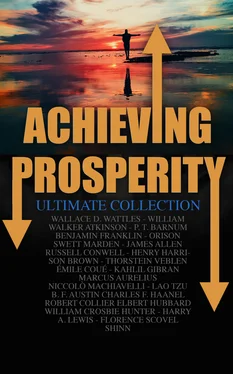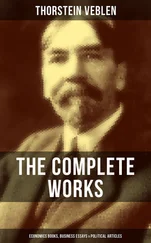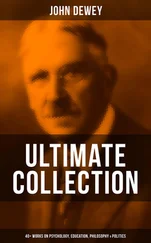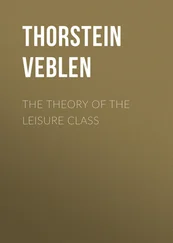This ordeal by oath was reserved for people of eminence, whose word went for something, and who had a good many thorough-going friends.
Another sort of ordeal was reserved for priests. It was called corsned . The priest who took the ordeal by corsned received a bit of bread or a bit of cheese which was loaded heavily, by way of sauce, with curses upon whomsoever should eat it falsely. This he ate, together with the bread of the Lord’s supper. Everybody knew that if he were guilty, the sacred mouthful would choke him to death on the spot. History records no instance of the choking of any priest in this ordeal, but there is a story that the Saxon Earl Godwin of Kent took the corsned to clear himself of a charge of murder, and (being a layman) was choked. I fully believe that Earl Godwin is dead, for he was born about the year 1000. But I have not the least idea that corsned killed him.
The priests had the management of ordeals, which, being appeals to God, were reckoned religious ceremonies. They of course much preferred the swearing and eating and hot iron and water ordeals, which could be kept under the regulation of clerical good sense. Not so with the ordeal by battle. No priests could do anything with the wrath of two great mad ugly brutes, hot to kill each other, and crazy to risk having their own throats cut or skulls cleft rather than not have the chance. In consequence, the whole influence of the Romish church went against the ordeal by battle, and in favor of the others. Thus the former soon lost its religious element and became the mere duel; a base indulgence of a beast’s passion for murder and revenge. The progress of enlightenment gradually pushed ordeals out of court. Mobs have however always tried the ordeal by water on witches.
Almost all the heathen ordeals have depended on fire, water, or something to eat or drink. Even in the Bible we find an ordeal prescribed to the Jews (Numbers, chap v.,) for an unfaithful wife, who is there directed to drink some water with certain ceremonies, which drink God promises shall cause a fatal disease if she be guilty, and if not, not. It is worth noticing that Moses says not a word about any “water of jealousy,” or any other ordeal, for unfaithful husbands!
This drinking or eating ordeal prevails quite extensively even now. In Hindostan, theft is often enquired into by causing the suspected party to chew some dry rice or rice flour, which has some very strong curses stirred into it, corsned fashion. After chewing, the accused spits out his mouthful, and if it is either dry or bloody, he is guilty. It is easy to see how a rascal, if as credulous as rascals often are, would be so frightened that his mouth would be dry, and would thus betray his own peccadillo. Another Hindoo mode was, to give a certain quantity of poison in butter, and if it did no harm, to acquit. Here, the man who mixes the dose is evidently the important person. In Madagascar they give some tangena water. Now tangena is a fruit of which a little vomits the patient, and a good deal poisons or kills him; a quality which sufficiently explains how they manage that ordeal.
Ordeals by fire and water are still practiced, with some variations, in Hindostan, China, Pegu, Siberia, Congo, Guinea, Senegambia and other pagan nations. Some of those still in use are odd enough. A Malabar one is to swim across a certain river, which is full of crocodiles. A Hindoo one is, for the two parties to an accusation to stand out doors, each with one bare leg in a hole, he to win who can longest endure the bites they are sure to get. This would be a famous method in some of the New Jersey and New York and Connecticut seashore lowlands I know of. The mosquitoes would decide cases both civil and criminal, at a speed that would make a Judge of the Supreme Court as dizzy as a humming-top. Another Hindoo plan was for the accused to hold his head under water while a man walked a certain distance. If the walker chose to be lazy about it, or the prisoner had diseased lungs, this would be a rather severe method. The Wanakas in Eastern Africa, draw a red hot needle through the culprit’s lips—a most judicious place to get hold of an African!—and if the wound bleeds, he is guilty. In Siam, accuser and accused are put into a pen and a tiger is let loose on them. He whom the tiger kills is guilty. If he kills both, both are guilty; if neither, they try another mode.
Blackstone says that an ordeal might always be tried by attorney. I should think this would give the legal profession a very lively time whenever the courts were chiefly using tigers, poison, drowning, fire and red hot iron, but not so much so when a little swearing or eating was the only thing required.
This whole business of ordeals is a singular superstition, and the extent of its employment shows how ready the human race is to believe that God is constantly influencing even their ordinary private affairs. In other words, it is in principle like the doctrine of “special providence.” Looked at as a superstition however—considered as a humbug—the history of ordeals show how corrupt becomes the nuisance of religious ways of deciding secular business, and how proper is our great American principle of the separation of state and church.
Table of Contents
APOLLONIUS OF TYANA.
The annals of ancient history are peculiarly rich in narratives of pretension and imposition, and either owing to the greater ignorance and credulity of mankind, or the superior skill of gifted but unscrupulous men in those days, present a few examples that even surpass the most remarkable products of the modern science of humbug.
One of their most surprising instances—in fact, perhaps, absolutely the leading impostor—was the sage or charlatan (for it is difficult to determine which) known as Apollonius Tyanæus so called from Tyana, in Cappadocia, Asia Minor, his birthplace, where he first saw the light about four years earlier than Christ, and consequently more than eighteen and a half centuries ago. His arrival upon this planet was attended with some very amazing demonstrations. With his first cry, a flash of lightning darted from the heavens to the earth and back again, dogs howled, cats mewed, roosters crowed, and flocks of swans, so say the olden chroniclers—probably geese, every one of them—clapped their wings in the adjacent meadows with a supernatural clatter. Ushered into the world with such surprising omens as these, young Apollonius could not fail to make a noise himself, ere long. Sent by his doting father to Tarsus, in Cilicia, to be educated, he found the dissipations of the place too much for him, and soon removed to Ægæ, a smaller city, at no great distance from the other. There he adopted the doctrines of Pythagoras, and subjected himself to the regular discipline of that curious system whose first process was a sort of juvenile gag-law, the pupils being required to keep perfectly silent for a period of five years, during which time it was forbidden to utter a single word. Even in those days, few female scholars preferred this practice, and the boys had it all to themselves, nor were they by any means numerous. After this probation was over, they were enjoined to speak and argue with moderation.
At Ægæ there stood a temple dedicated to Æsculapius, who figured on earth as a great physician and compounder of simples, and after death was made a god. The edifice was much larger and more splendid than the Brandreth House on Broadway, although we have no record of Æsculapius having bestowed upon the world any such benefaction as the universal pills. However, unlike our modern M. D.s, the latter was in the habit of reappearing after death, in this temple, and there holding forth to the faithful on various topics of domestic medicine. Apollonius was allowed to take up his residence in the establishment, and, no doubt, the priests initiated him into all their dodges to impose upon the people. Another tenet of the Pythagorean faith was a total abstinence from beans, an arrangement which would be objectionable in New England and in Nassau street eating houses.
Читать дальше












